About LifeSpring Health Systems Washington County Office
Welcome to LifeSpring Health Systems Washington County Office. Our mission is to provide superior quality, comprehensive behavioral health care services that promote recovery for the people we serve. We offer a variety of programs and services for adults, young adults, and elders, including dual diagnosis, rehabilitation, cognitive behavioral therapy, dialectical behavior therapy, experiential therapy, family therapy, group therapy, individual therapy, and trauma therapy. We are committed to providing the highest quality of care possible, and we hope that you will give us the opportunity to serve you. Thank you for considering us.
Addiction Treatment Programs
Dual Diagnosis
When you have a dual diagnosis, you have mental health and substance use concerns. It’s important to choose a rehab in Indiana that can treat both. Along with traditional evidence-based substance use treatment, clients may receive mental health counseling, medication, peer support, and other tools to help them manage their mental health.
Young Adult Rehab
Young adult rehabs in Indiana help young people overcome substance use and learn new life skills. Along with traditional evidence-based treatment, clients may receive educational support, employment training, and help securing housing.
Adult Program
Those who join an adult program in Indiana are given training in key life skills to help them with parenting, their career, and more. Along with traditional evidence-based treatment, clients may receive employment support, parenting classes, and help securing housing.
Senior Rehab
If you’re older, finding a senior rehab in Indiana can make all the difference in helping you overcome substance use. Along with traditional evidence-based treatment, clients may receive peer support, pain management education, and referrals to social services that can help with challenging aspects of daily life.
Men's Rehab
If you’re a man struggling with substance use, consider a men’s rehab program in Indiana. Along with traditional evidence-based treatment, clients may receive education on topics relevant to men, such as fatherhood, healthy relationships, emotional vulnerability, and more.
Women's Rehab
A women’s rehab in Indiana addresses the recovery needs of female clients and gives them the tools they need to succeed. Along with traditional evidence-based treatment, clients may receive help with childcare, classes in parenting, and advice about being a working mother and building healthy relationships.
Insurance Coverage
Medicaid
If you qualify for Medicaid in Indiana, you can use your coverage to help pay for rehab treatment. You can find treatment centers that accept Medicaid offering multiple levels of care, including detox, inpatient, and outpatient. You may pay little or nothing out-of-pocket.
Private insurance
If you have private insurance, that’s one good way to pay for substance use treatment in Indiana. Your insurance plan can pay for some or all of the costs of rehab, although you will want to contact the insurer for full details. You may have some out-of-pocket costs such as copays or deductibles.
Self-pay options
Paying for rehab in Indiana can be done a number of ways, including self-pay. When you pay on your own, you can write a check, send money electronically, or use a medical loan. Check with the center for the fee structure, which may vary based on the level of care.
Financial aid
There are many ways to pay for rehab in Indiana, including using financial aid programs if you qualify. Treatment programs may offer grants and scholarships to help you afford the cost of treatment, or you might find help from non-profits or other community groups.
Sliding scale payment assistance
There are many ways to pay for rehab in Indiana, including finding a program with a sliding scale payment plan. Centers make lower fee arrangements for those in need based on income and family size. You may need to provide documentation.
Medicare
For those with Medicare, using your coverage to pay for treatment in Indiana can make rehab more accessible. Keep in mind that Medicare plans vary, so it’s important to check on coverage information and to find out which treatment centers accept your coverage.
Military insurance
There are many ways to pay for rehab in Indiana, including using military insurance if you’re a service member or veteran. Plans vary, so contact the insurer to find out what treatment centers are in your plan’s network and to learn coverage details.
Levels of Care
- 1
Outpatient Rehab
During outpatient treatment in Indiana, clients receive evidence-based treatment while living at home or in sober living. Outpatient treatment includes multiple approaches, including cognitive behavioral therapy (CBT), motivational interviewing (MI), and holistic therapy options.
Therapies
Cognitive Behavior Therapy
Cognitive behavioral therapy in Indiana can help you challenge the thoughts behind your emotions and actions. CBT is a common part of evidence-based treatment programs and may be a part of inpatient treatment, outpatient care, or both. CBT can be empowering as you learn to manage your thoughts and emotions rather than being overwhelmed by them.
Dialectical Behavior Therapy
Dialectical behavioral therapy in Indiana can help you build confidence and develop healthy coping skills. DBT is a common part of evidence-based treatment programs and may be a part of inpatient treatment, outpatient care, or both.
Experiential Therapy
The goal of experiential therapy in Indiana is to help you process your emotions and gain confidence in your ability to create positive change. Experiential therapy is commonly part of inpatient or intensive outpatient treatment and may be used to help with skill-building, addressing trauma, and managing substance use triggers.
Family Therapy
During family therapy in Indiana, clients have a supportive environment to talk with family members about conflict and unhealthy behaviors that may trigger substance use. Some of the topics covered in family therapy include improving communication, developing healthy coping skills, avoiding codependency and enablement, and learning to support each other in healthy ways that foster recovery from addiction.
Group Therapy
During group therapy in Indiana, clients have a safe environment to share their struggles with others going through similar issues. Group therapy is a normal part of evidence-based treatment programs, and may be a part of inpatient treatment, outpatient care, or both. Topics include addiction education, sharing of experiences, and learning new skills.
Individual Therapy
Individual therapy in Indiana is led by a professional therapist who talks to you about your specific experiences and emotions. Individual therapy is a common part of both inpatient and outpatient substance use treatment and may be used to help with skill-building, overcoming trauma, and creating a substance-free lifestyle.
Trauma Therapy
If you struggle with addiction in Indiana, it’s common to feel like no one understands what you’ve been through. Trauma-informed therapy can help you find professional help addressing your past and creating a healthier response going forward. Trauma-informed therapy sessions generally last 60 to 90 minutes and may include discussing a specific event, talking about emotional triggers, and learning emotional regulation and cognitive restructuring skills.
Location
Contact LifeSpring Health Systems Washington County Office
Top Drug Rehab Centers in Indiana
-
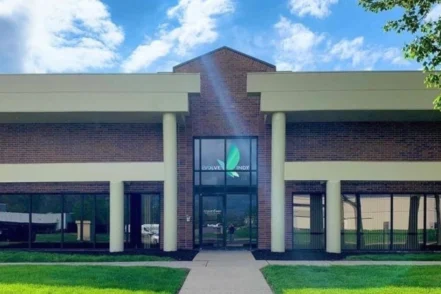 Indiana
IndianaEvolve Indy
8770 Guion Rd, Suite B Indianapolis, Indiana 46268
-
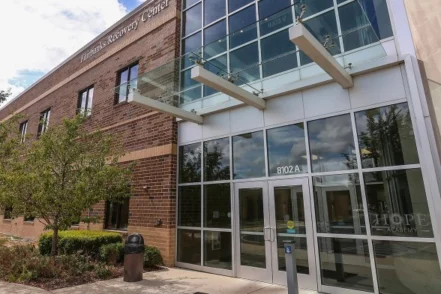 Indiana
IndianaCommunity Fairbanks Recovery Center
8102 Clearvista Parkway Indianapolis, Indiana 46256
-
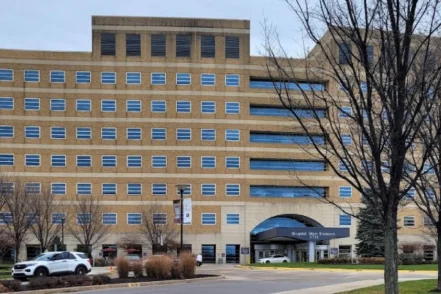 Indiana
IndianaIU Health Methodist Hospital Indianapolis
1701 North Senate Blvd. Indianapolis, Indiana 46202
-
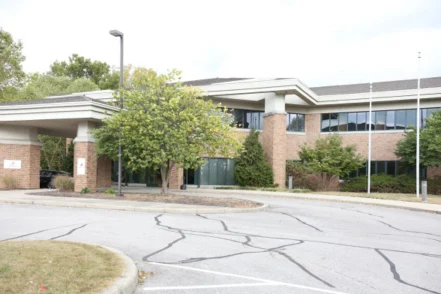 Indiana
IndianaLandmark Recovery Indianapolis
6330 Digital Way Indianapolis, Indiana 46278
-
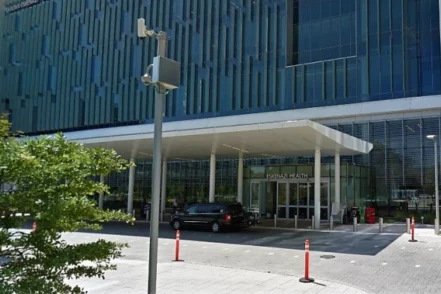 Indiana
IndianaSandra Eskenazi Mental Health Center Eskenazi Avenue
720 Eskenazi Avenue Indianapolis, Indiana 46204
-
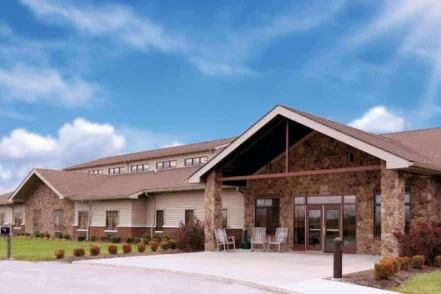 Indiana
IndianaBrentwood Springs
4488 Roslin Road Newburgh, Indiana 47630
-
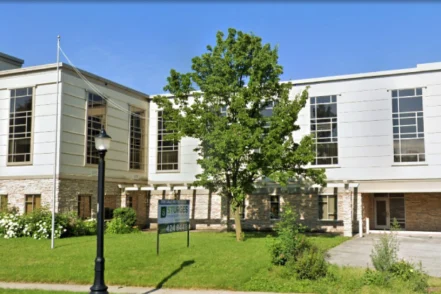 Indiana
IndianaAvenues Recovery Center at Fort Wayne
2626 Fairfield Avenue Fort Wayne, Indiana 46807
-
 Indiana
IndianaAlcohol and Addictions Resource Center
818 East Jefferson Boulevard South Bend, Indiana 46617
-
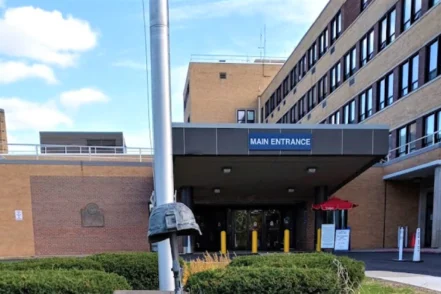 Indiana
IndianaVA Northern Indiana Health Care System Fort Wayne Campus
2121 Lake Avenue Fort Wayne, Indiana 46805
-
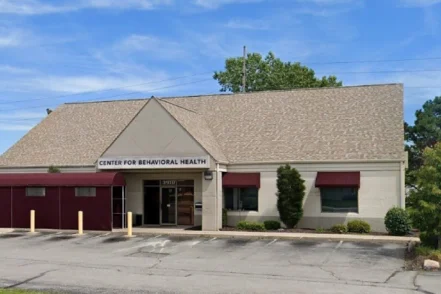 Indiana
IndianaCenter for Behavioral Health Fort Wayne
3910 Lima Road Fort Wayne, Indiana 46808